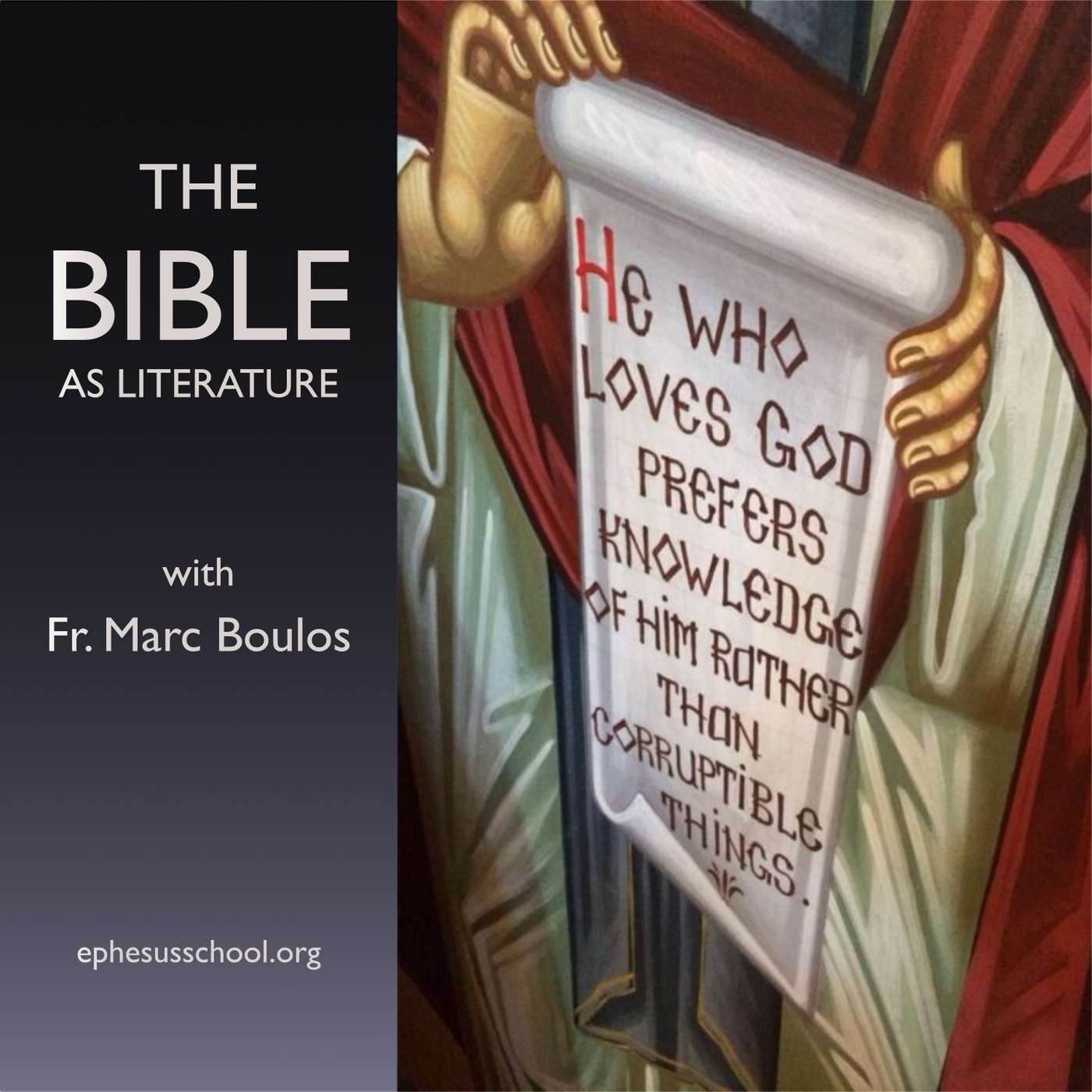
The Bible as Literature
The Ephesus School
Podcast
Episodes
Listen, download, subscribe
Thorny Trees Are Not for Normie Trees
For all you lost souls, reading books about how to be a better parent; For all you disciples of neoliberalism, believers in the new fascism, the elitist colonialism repackaged in a delusion tailor-made for people lured by the flattery of progress, fooled by a “new world” where the enlightened trample on the dead, comforted by the lie that they know better than all those who have ever lived, I have news for you: It’s not “good” news; it’s just news, but if you insist on labeling it, please consider it “bad news.” According to the Gospel of Luke, “a tree is known by its fruit.” Now, before you get together with your breakfast buddies and start gossiping about each other’s children, again, I have “news” for you, Habibi. You are gossiping. Oops! Like Jesus said, there is no such thing as a “good” teacher or a “good” parent because, as far as the eye can see, there has never been a family tree that has produced a “good” result. You, Habibi, are the blind guide, just like the rest of us. Let’s assume for a moment that the Platonic principle of the “moral arc of history” isn’t wishful thinking and make the wild assumption that you are an improvement on your parents, an incremental step forward, part of the sum total of history your ancestors and your society have achieved. What’s the result? What’s happening now in the world after everything supposedly learned by man less than a century ago? What did we learn? Did the war ever stop? Did we “grow” in humility? Never mind that you can’t “grow” into something small. It’s a foolish statement, an antinomy. No, our behavior has not improved, as evidenced by your parents’ fruit and yours. We used to use religion to whitewash our tombs. Now, we use liberal values, which cynically ridicule religion while embracing the fiction of religious nationalism in West Asia to justify the desperate agenda of the dollar. In the end, the mechanism—the function—is the same. In the modern West, our heartfelt, introspective, socially conscious, “normie” liberal values are leveraged as the new opium of the people: “bread and circuses” as the elitist machine rages forward. Luke’s message is clear: There is no such thing as progress. We are no better than our parents; the judgment of Genesis 6 is written, and God almighty has spoken the truth. We dare not test him. No human tree ever bears good fruit. If there is any hope, we must put our hope in him. This week, I discuss Luke 6:43-45. Show Notes ע-ץ-ץ (ayin-ṣadi-ṣadi) / ع-ض-ه (‘ayn-ḍād-hā’)The Hebrew עֵץ (‘eṣ) can refer to “tree,” “timber,” “wood,” or even a “handle.” It has a functional connection to עצה (‘eṣah), which pertains to advice or counsel. In Arabic عِضَاه (‘iḍāh) can refer to thorny trees and shrubs commonly found in arid or desert regions. Aligns to δένδρον (dendron) in Luke 6:43. “When you besiege a city a long time, to make war against it in order to capture it, you shall not destroy its trees (צָעֵ, ‘eṣa) by swinging an axe against them; for you may eat from them, and you shall not cut them down. For is the tree (עֵץ, ‘eṣ) of the field a man, that it should be besieged by you?” (Deuteronomy 20:19)ס-נ-ה (samek-nun-he) / س-ن-ن (sīn-nūn-nūn)סְנֶה (s’neh) in biblical Hebrew can mean briar or bramble (a thorny, fruit-bearing bush), sometimes translated as “bush,” as follows in Exodus. It corresponds to βάτος (batos) in Luke 6:44:“The angel of the Lord appeared to him in a blazing fire from the midst of a bush (סְנֶה,s’neh); and he looked, and behold, the bush (סְנֶה,s’neh) was burning with fire, yet the bush (סְנֶה,s’neh) was not consumed.” (Exodus 3:2)In Arabic, sanan (سنن) is multi-functional. Though not directly used as “thorn” or “bush,” its root س-ن-ن (sīn-nūn-nūn) pertains to things like “point” or “sharp edge” and can relate to the idea of something pointed or thorn-like. The plural form, sunan, refers to “customs” or “practices,” particularly those of the Prophet Muhammad, known as Sunnah (سُنَّة), recalling, from the Bible, that wisdom has an edge and cuts against the grain: “The words of the wise are like goads, their collected sayings like firmly embedded nails—given by one Shepherd.” (Ecclesiastes 12:11) ★ Support this podcast on Patreon ★
The Bible as Literature RSS Feed
















